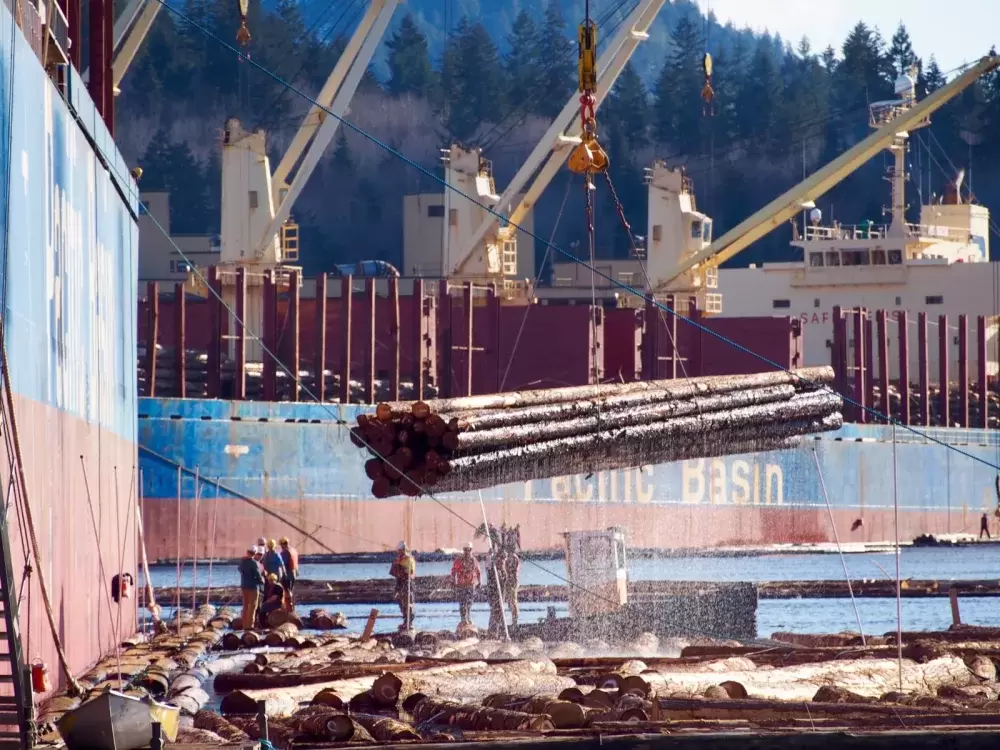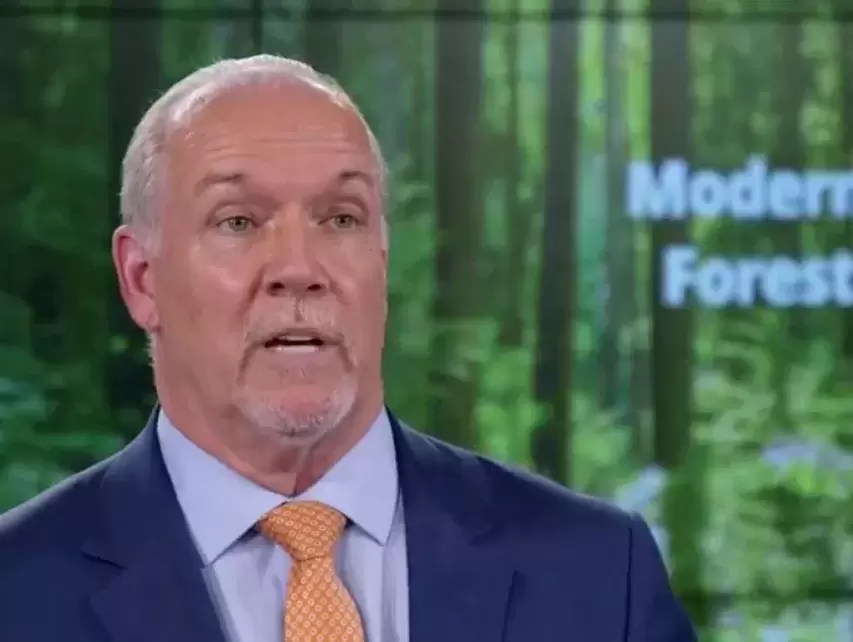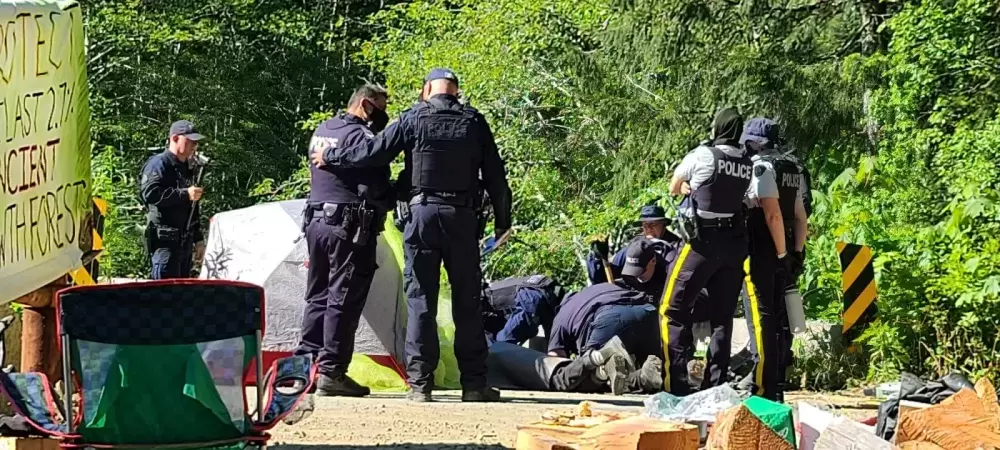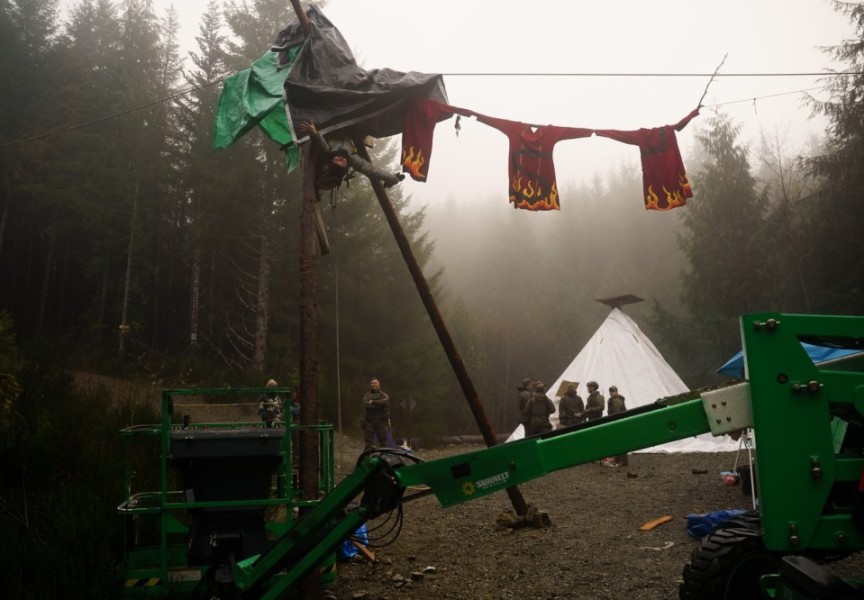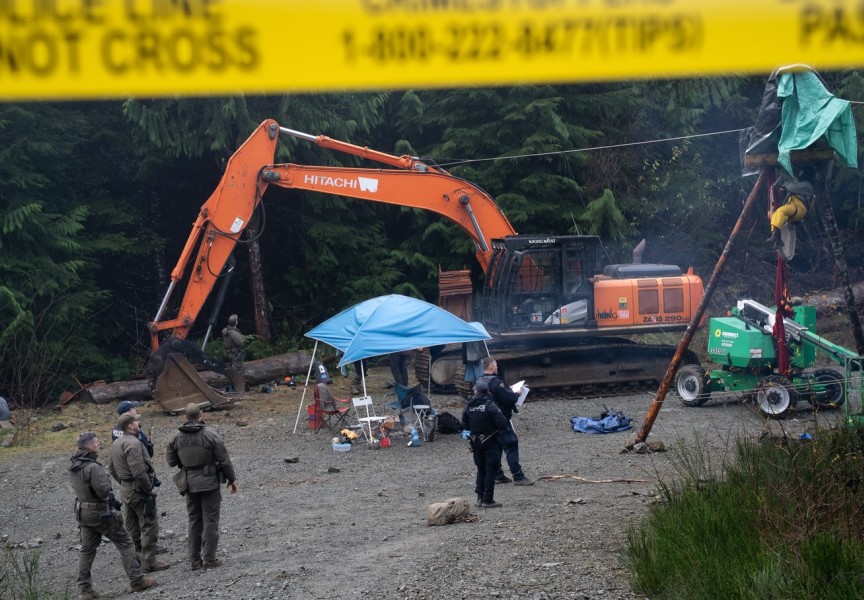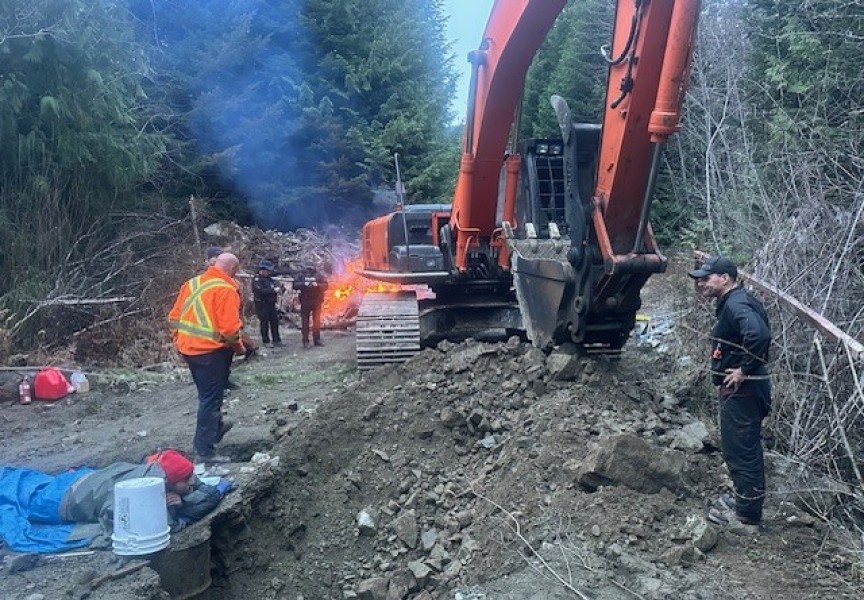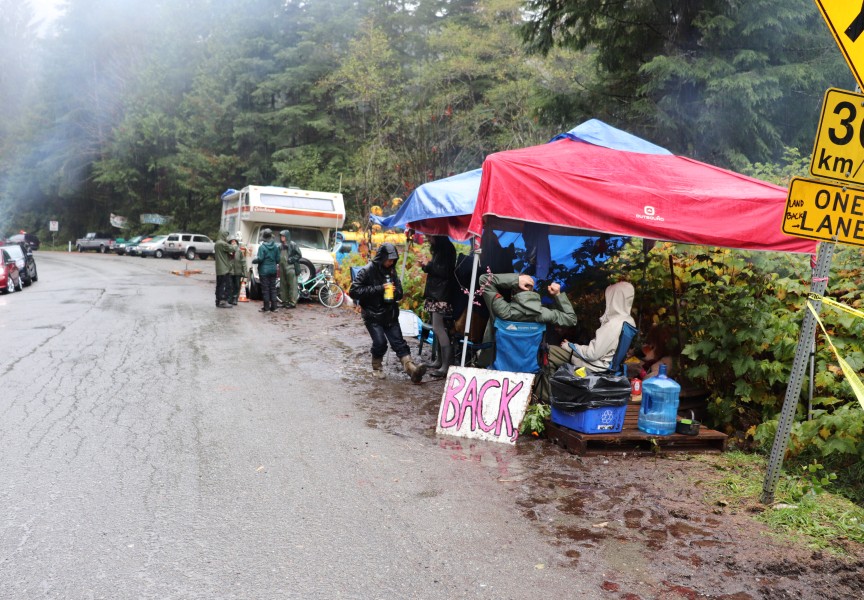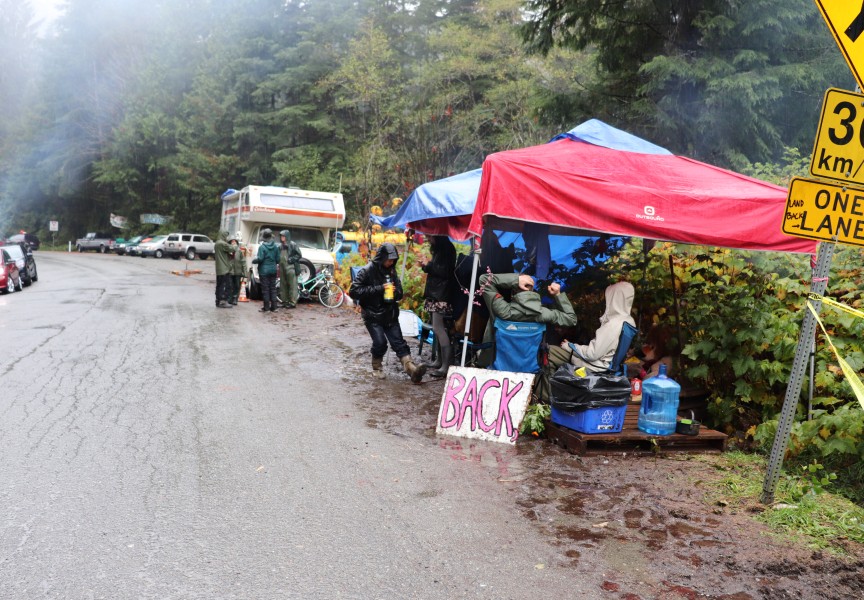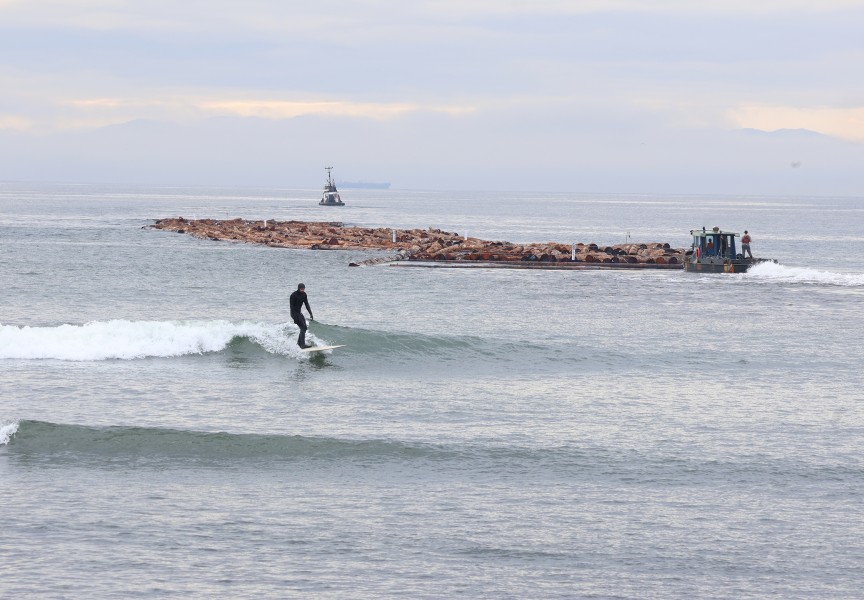A government pledge to modernize forest policy, double forest tenure held by First Nations and protect old growth forests in the province amounts to the same old “talk and log,” critics say.
Premier John Horgan and Forests Minister Katrine Conroy announced the policy initiative Tuesday, June 1, coupling it with reconciliation while stressing an expanded role for First Nations in the forest sector and land-use decisions in their territories.
Horgan said the goal is to transition the forest industry from “a high-volume past to a high-value future.”
“Our vision is about committing to the future,” he said. “It means there will be new deferrals on old growth subject to consultation with the title holders, the Indigenous people who have been on the territories of British Columbia for millennia. It’s vital, absolutely vital, that we do not repeat the colonial actions of the past by dictating to First Nations what they do on their territory today.”
Horgan described existing forest policy in B.C. as a patchwork of outdated and incomprehensible regulations that does not meet current challenges including climate change. The “new vision,” outlined in an intentions paper, calls for a more diverse and competitive forestry sector focused on sustainability and meeting community needs.
The plan, which will not be implemented until 2023, is based on three principles: increased sector participation, enhanced stewardship and sustainability and a strengthened social contract to give government more control over management of the sector.
“When Indigenous communities call for greater access to economic opportunities, it means something on the ground to First Peoples. It means, when we just talk about reconciliation, that’s one thing, but when we deliver access to your traditional territories, we’re turning back the clock on a colonial history that was brought graphically into coverage this week by the discoveries in Kamloops. I know British Columbians want to turn the page on our colonial past,” he added.
B.C. Green Party MLAs lashed out at the Horgan government plan, calling it a betrayal.
“Thousands of British Columbians are showing up to protest the B.C. NDP’s lack of protection of our ancient forests,” said Green Party Leader Sonja Furstenau. “People want to see this government step up and recognize the urgency of the moment we are in.”
In 2018, Nuu-chah-nulth Tribal Council called on the province to work with them on slowing or halting the rapid disappearance of old growth forests in their territories.
“Protection of old growth must happen now,” the NTC said.
The Union of B.C. Indian Chiefs has called for immediate deferral of old growth logging and funding for Indigenous communities to take stock of what remains of old growth in their territories.
“A paradigm shift would involve providing critical financing for Indigenous-led conservation initiatives to ensure that they have the resources and economic capacity to determine the future for their own territories,” said Green MLA Adam Olsen. “Instead, today’s announcement is a missed opportunity to defer logging in the most contested stands of old growth, to repair division in communities and to create space for meaningful dialogue with Indigenous communities.”
The premier repeated his promise to adopt recommendations from the strategic review of B.C. old growth forest that was released prior to last year’s provincial election.
“We owe it to our children and grandchildren to preserve this ancient forest,” he said. “We’re committed to implementing all the recommendations of the old growth strategic review.”
He said the 200,000 hectares of old growth already preserved is equivalent to twice the area to the Lower Mainland or “500 Stanley Parks,” a claim that environmentalists have disputed.
“And there is much more to do,” Horgan added. “In addition to the deferrals we’ve already done, we will continue to collaborate with First Nations and others to make sure that we protect species and we protect that diversity that is so important to our old growth forest.”
The forest policy announcement was closely followed on digital media by protesters on blockades at Fairy Creek and theWalbran Valley even as more are arrested daily by RCMP.
One Indigenous youth suffered head injuries and was taken to hospital Tuesday, June 1 after police dismantled a tripod of poles on which he was sitting, said Erika Heyrman, a fellow protester.
“The way they got him down was reckless and dangerous,” Heyrman said.
Bill Jones, a Pacheedaht elder supporting blockades against old-growth logging, said he is not convinced by the government’s intentions paper.
“I think it’s just another lip-service promise,” Jones said, adding that Horgan cannot be trusted to follow through. “Until he earns credibility, I have very much distrust for him and his government as he has made false promises and never came through.”
A handful of Indigenous, business and municipal representatives took part in the announcement and gave it cautious approval.
“We are happy to see this government is ready to continue talking about solutions to forest health and management,” said Dallas Smith, president of Nanwakolas Council, which represents five First Nations on the Island and mainland. “There are a lot of challenging issues that need to be discussed with many parties, but respectful collaboration and dialogue will have greater impact and a more efficient path forward than the recent increase in activism.”
Horgan maintained the government cannot intervene in the Fairy Creek dispute without going back on its commitment to implement all recommendations from the old growth review.
“The critical recommendation that’s at play at Fairy Creek is consulting with the title holders, the people on whose land these forests are growing on,” Horgan said.
That includes the Pacheedaht First Nation as well as Dididaht and Huu-ay-aht First Nations in other parts of TFLs 44 and 46, he noted.
“If we were to arbitrarily put in place deferrals there, that would be a return to the colonialism that has so graphically been brought back to us as a result of events in Kamloops this week,” Horgan said, alluding to the discovery of a mass grave of 215 children at a former residential school. “I’m not prepared to do that.”

